12 Sep 2019 - {{hitsCtrl.values.hits}}
 The Easter Sunday attacks were an absolute eye-opener for all Sri Lankans. On a positive note, not only did it make people realise that they should unite as one, but it also made them think about the root causes of extremism. But on a negative note, the Muslim community was demonized, businesses were boycotted and they continue to face many adversities. Education plays a key role in shaping the mindsets of children. Sri Lanka has an education system that doesn’t encourage trilingualism or a multi-religious approach. Many are of the view that colonial influences have distorted the system by allowing religious leaders to take control over education. It is in this backdrop that a group of educationists and professionals have come together to propose for an urgent manifesto for peace, harmony, safety and security for all Sri Lankans.
The Easter Sunday attacks were an absolute eye-opener for all Sri Lankans. On a positive note, not only did it make people realise that they should unite as one, but it also made them think about the root causes of extremism. But on a negative note, the Muslim community was demonized, businesses were boycotted and they continue to face many adversities. Education plays a key role in shaping the mindsets of children. Sri Lanka has an education system that doesn’t encourage trilingualism or a multi-religious approach. Many are of the view that colonial influences have distorted the system by allowing religious leaders to take control over education. It is in this backdrop that a group of educationists and professionals have come together to propose for an urgent manifesto for peace, harmony, safety and security for all Sri Lankans.
Educate our children to live in peace and harmony.
Develop a policy to prevent full-time schools that teach religion and/or a specific language only, during the 13 years of a child’s education.
Whilst enabling the learning of one’s own religion, develop a policy that facilitates the learning of other religions and peace studies.
Consolidate, enhance and ensure the implementation of trilingualism, to facilitate cross-ethnic communication and employability. A link language should be made a compulsory core subject that should be examined at some level.
Develop a policy to prevent the establishment of new schools branded directly or indirectly by a specific religion/ethnic group. Encourage existing schools branded directly or indirectly by a specific religion/ethnic group to admit a minimum of 10% children of other faiths/ethnic groups to ensure a multi-religious/ multi-ethnic environment.
Enact laws to regulate all schools, universities and institutes of education, monitor their sources of external funding and have a system of authorising /licensing teachers.
With that in mind, the Daily Mirror spoke to few professionals who expressed their views as follows :
“I think religion should be taught in schools. It’s important to teach religion to children and the one they belong to. On the other hand we have three languages. There’s no reason why we can’t teach three languages in schools. What is taught isn’t adequate. We don’t have schools based on race. We don’t see Catholics, Christians or Muslims as different to one another. During the religion period, students in different religions attend their respective class. Whatever we do start from school. So if that institution is segregated there’s a problem. It’s also good if children could be taught about other religions for the purpose of knowledge. Therefore children shouldn’t be separated on the basis of race or religion.” – Dumindra Ratnayaka, Chairman – Suwa
Seriya Foundation
“The Policy framework is useless unless prepared as an Act and passed in Parliament. Between 2010 and 2013 there was a committee appointed to form a Policy. But at the moment we only have an education ordinance in 1939 and we don’t have our own Education Act. If we look back at our history the Portuguese and the Dutch occupied the coastal areas. The Dutch wanted to propagate their religion and established missionary schools. So students were automatically biased through religion. Then when the British came in 1815 Christian Missionaries grew. Then the Buddhist movements also started and with the involvement of Col. Henry Steel Olcott, Anagarika Dharmapala and Migettuwatte Gunananda Thera, the pirivena education system was introduced. Then Hindu schools were established in Jaffna. Education was under the control religious leaders. Then C.W.W Kannangara introduced the concept of free education on 1943 in central colleges. These schools weren’t segregated. Free education was quite popular at the time. But people refused going to fee-levying private schools. Then in 1960 the government brought in a Supplementary Act called the Assisted Schools Act. Here the government gave three options ; either remain as a government school, a private school or a semi-government school where the government would pay the salaries. This act is over 60 years old now. Right now, the best thing to do is that all new schools shouldn’t be segregated on religion. There has to be an education system that emphasize on moral values, culture and tradition. It’s impossible to make this happen overnight but we should head in that direction.” – Dr. Mohan Lal Grero, Educationist and Politician
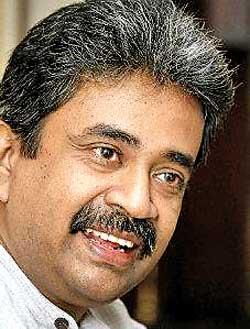
Dr. Vinya Ariyaratne - While values of Buddhism should be practised, ethics too have to be in place
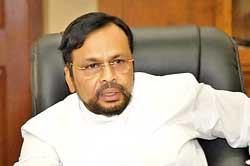
Dr. Mohan Lal Grero - all new schools shouldn’t be segregated on religion
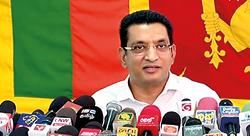
Ali Sabry - It is also important to teach more philosophy as well as other religions
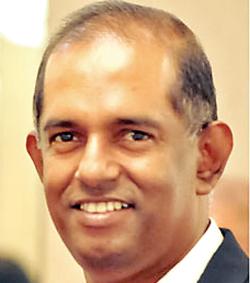
Dumindra Ratnayaka - What is taught isn’t adequate. We don’t have schools based on race
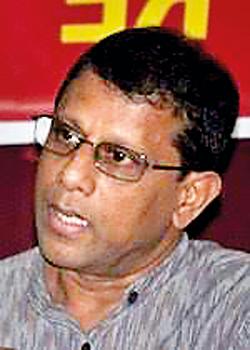
Dr. Kumudu Kusum Kumara - parents like to educate children in the language they speak
“Historically, schools segregated by language have come into being due to practical issues. Most parents would like to educate their children in the language they talk at home. Most Tamils, and most Muslims talk in Tamil at home. Some may choose teaching their children in English medium if available if the child can cope with it, which will be difficult without the required background at home. If all the schools can teach children in all three language media, allowing the choice to parents and children, that would be acceptable. Unless that can be implemented, abolishing schools segregated by language would not be practically feasible.
“When the management of schools were taken over by the government in the 1960s, some schools managed by religious institutions resisted it and chose to continue to be run by respective religious institutions, Christian/Catholic, Hindu, Muslim. The idea behind running schools by religious institutions is that parents believe that they would like their religions to influence the way in which their children are educated in the school, above and beyond the school curriculum. It manifests a belief that there is much more to education than merely teaching the subject matter and preparing the children to pass examinations.
“It is doubtful that there is evidence to show that in general, schools run by religious institutions have produced extremists or chauvinists. In fact it is such schools which have traditionally earned a reputation for giving the “best education” to children so much so that many parents who are not even religiously affiliated to the institution running a particular school would have liked to get their children to such a school if the child can handle the medium of instruction. The education imparted by such schools, it was generally believed, would produce gentlemen and ladies exemplary in social life, among other things.” – Dr. Kumudu Kusum Kumara, Senior Lecturer, Department of Sociology, University of Colombo
“Segregation isn’t healthy. Recently there’s an alarming trend where Buddhist schools are supposed to be exclusively Buddhist. While values of Buddhism should be practised, ethics too have to be in place. If we take Christian schools they are very accommodative. It is important that those schools increase their quotas in taking children from other religions. There has to be a transition now. It’s a powerful tool for reconciliation. Today, religion is disconnected from life. Children should know basic principles and values of life. Therefore segregation shouldn’t happen.” – Dr. Vinya Ariyaratne, President, Sarvodaya Shramadana Movement
“We basically divide children between 5-18 years and then they come out into society. This is not easy to change. We need to coexist in order to feel the ‘Sri Lankanness’. At least the new schools should be national schools and allow other communities into the system as well. It is also important to teach more philosophy as well as comparative religions rather than your own religion. Other countries have already done it and should follow as well.” – Ali Sabry, President’s Counsel
25 Apr 2024 45 minute ago
25 Apr 2024 2 hours ago
25 Apr 2024 2 hours ago
25 Apr 2024 4 hours ago
25 Apr 2024 8 hours ago